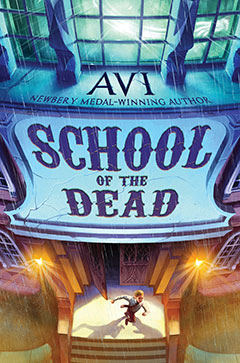While Shakespeare once wrote, “A rose by any other name will smell as sweet,” a good (or bad) title can make a difference for a book. The book’s title is the introduction of a book to the reader. It is enormously important.
Curiously, you cannot copyright a title. That explains why some titles reappear for different books.
Titles, some famously, change. When Stevenson’s Treasure Island was first published (in a magazine, as a serialized work) it was called The Sea Cook. Only when published as a hardback book was the title (as we know it today) changed, by an editor, if I remember correctly. The original titled referenced Long John Silver.
 Over the years, with so many books written, I have had my share of titles, both good and bad. When I begin a book I give the work a title, not with a sense that it is the one that is final, but more like a label, a way of thinking about it, and referencing it. In book contracts a title is given, but that does not mean it is used.
Over the years, with so many books written, I have had my share of titles, both good and bad. When I begin a book I give the work a title, not with a sense that it is the one that is final, but more like a label, a way of thinking about it, and referencing it. In book contracts a title is given, but that does not mean it is used.
Wolf Rider was not a good title, insofar, as it doesn’t readily connect with a reader. Even those who have enjoyed the book (and many have done so) have asked me to explain the title. Not good.
The True Confessions of Charlotte Doyle was first called The Seahawk. That title derived from the ship on which the story takes place. Curiously, when I first thought of it, I had to check, finding it hard to believe it had not been previously used.
Nothing but the Truth was titled Discovery. That word references the legal term for the evidence in a case, which is the way the book is organized.
 Poppy was called Pip. I had been reading the manuscript to a class when a boy showed me a book called Pip, the Story of a Mouse. “Is this,” he asked, “the book from which you got the name?” In fact, the name “Pip” came to me from Dickens’ Great Expectations. In any case, I changed the name of my character (and book) to “Poppy.”
Poppy was called Pip. I had been reading the manuscript to a class when a boy showed me a book called Pip, the Story of a Mouse. “Is this,” he asked, “the book from which you got the name?” In fact, the name “Pip” came to me from Dickens’ Great Expectations. In any case, I changed the name of my character (and book) to “Poppy.”
Crispin: The Cross of Lead, my Newbery book, was titled, No Name.
School of the Dead was originally called The Weird History Club.
The forthcoming Gold Rush Girl was called Rotten Row.
Catch You Later, Traitor had the title Season of Suspicion, which cross-referenced political suspicion with a famous baseball season, both subjects of the book.
The Fighting Ground was called Twenty-four Hours.
3 thoughts on “Titles”
Avi, do you change the titles after you work on and submit them to your editor, or does your editor change the names? Love your work by the way!
Lisa
I have a working title from the start. You need a name for computer use. And recently I made a pitch to an editor and she asked for a title. I do change it if I feel moved to do so while writing the first draft. And sometimes there is a discussion with editor about title, and further changes might well result. In other words it is very fluid.
Book titles have amused me since I was in college. At breakfast one morning, three or four friends of mine were discussing the drab titles of philosophy books: Republic and Apology by Plato, Confessions by Augustine, etc. Maybe it was a function of the times and content, we thought. Conversation turned to modern novels. We generally concurred that a title with a little “oomph” teased us into giving something a shot much faster and kept us invested in reading-to-discover-its-significance longer than a lesser title.
Thank you for being so intentional with your titles and sharing the changes!